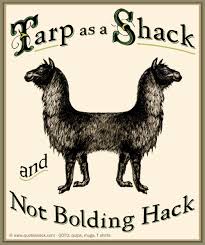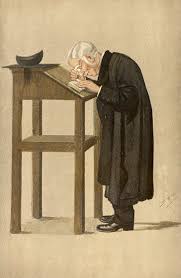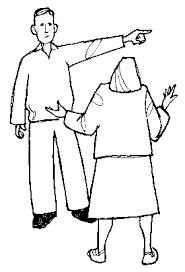It seems like it would be ever so simple to talk about your own book, doesn't it? The book that you worked on day after day, month after month...the book that you fabricated from thin air, the book that no one on earth knows better than you.
Oh, that it were so.
I've been to the extremes of interviews this week. A podcast interview yesterday lasted over an hour (73 minutes, to be exact). Another tarried for 20 minutes, and a live radio interview this morning was over in 4 minutes flat.
Which do you think was hardest?
If you said the quickie radio chat, you're right. I was nervous before it ever started, knowing that the time limit was five minutes or less. It's essential to be concise and well spoken in those cases, neither of which is my forte. I was even more feather-headed than usual at 9 AM for some reason, and it didn't help that I was scheduled to call the station instead of them calling me. After mis-dialing the number twice and dropping the phone on the cat, at the first "hello," I was put directly on the air without a format briefing or introduction to the co-hosts.
My brain immediately froze.
During the rapid-fire questions, I couldn't remember the name of my first book, my children, or how many pets I currently have (what does all that have to do with writing Mom Needs Chocolate, anyway?). Then I had a major tongue cramp and muttered "um" in six languages and three octaves before finally spitting out something semi-coherent.
It was a prime example of Mom REALLY needing chocolate. Or Prozac.
Anyway, now that everyone along the central eastern coast of the United States thinks I routinely hit the cooking sherry before my Grape Nuts, I'm sincerely considering canceling any further voice interviews before 1 PM.
Or calling my next book, "Godiva for Breakfast Melts Your Mind."
Wednesday, April 29, 2009
A Writer's Journey Continued
Posted by Debora M. Coty at 1:49 PM 0 comments
Labels: radio interviews, Writing
Tuesday, April 28, 2009
Have You Made a Spoonerism Today?
Do you know what a spoonerism is? We all do it.
A spoonerism is an involuntary reversal of sounds in two or more words, with humorous effect. 
For example, "a well-boiled icicle" for "a well-oiled bicycle" or a "scoop of boy trouts" for "troop of Boy Scouts" or a "blushing crow" for a "crushing blow."
The term spoonerism was coined around 1885.
Spoonerisms were named after William Spooner (1844-1930), an English clergyman, warden of New College, Oxford, and scholar of the late nineteenth and early twentieth centuries. He was famous for such mistakes.
In one spoonerism attributed to him, he meant “May I show you to another seat?” but said, “May I sew you to another sheet?”
Can you imagine having a word named after your verbal slip-ups? 
But wouldn't it have been fun to have gone to church, week after week, sitting on the edge of your chair, waiting for a new spoonerism to be delivered by the good Reverend?
Posted by Suzanne at 1:11 AM 0 comments
Labels: Spoonerism, William Spooner
Thursday, April 23, 2009
Finish Strong
I was reading a book last week that was just--mediocre. And then I got to the end. The ending was so surprising and so satisfying that it changed my opinion about the book. It went from mediocre to pretty good.
Endings--especially strong ones--are difficult to write, but they all begin with a commitment to writing well.
Here's a youtube clip that may inspire you to finish strong.
http://www.youtube.com/watch?v=n0P8EBiVDkM
Posted by Faith at 10:11 AM 0 comments
Wednesday, April 22, 2009
A Writer's Journey Continued
An interesting thing happened this week. Well, let me back up and fill in a little background.
After the release of Mom Needs Chocolate a few weeks ago, I tried to dream up new and innovative ways to promote my book. It came to my attention that the Amazon ranking of each book (found in the "Product Details" section on your Amazon page) is of interest to book buyers and industry people in the know. The more books sold, the lower the ranking becomes.
Hmmm. How to boost my rather anemic ranking of 57,000? (#1 would obviously be the best, so higher numbers are not desirable; "good" is considered less than 10k).
I came up with the idea of an Amazon Blitz, where all sales would be concentrated into one 24-hour period. Would that - could that - really make a difference?
I chose April 18 as my target date because (a) it was after tax day (whew!) and (b) it would allow plenty of time for books to arrive in time for Mother's Day. I e-mailed the 2,000 good folks on my contact list about the Amazon Blitz and breathed more than a few heart-felt prayers.
I was advised (by my savvy co-author Suzanne Fisher) to check the rankings frequently (it takes around 2 hours for new sales to show up) and print out proof if it dropped below 5k. Lo and behold, by mid-afternoon Mom Needs Chocolate's ranking had dropped to 2,500 and by evening it hit 1,700.
Whoa, doggies!
My publisher went wild. I went wild. My dog went wild (well, he already was).
Of course, longevity of low ranking is important to industry eyeballs, and it's yet to be seen if a one-time cannon blast will turn many heads, but it was awfully fun. Plus it proves what can be accomplished with a little stone, a slingshot, and a lot of faithful readers.
Posted by Debora M. Coty at 7:39 AM 0 comments
Labels: book promoting, books, Writing tips
Tuesday, April 21, 2009
Radio!
For the Love of Dogs released just a few weeks ago, and part of the promotion was doing some radio spots. .jpg)
I did an interview you can listen to here.
The interview happened Friday, a week ago. I had to shoo the family out of the house before 8am, put a note on the front door to make sure no one rang the bell, put the dog in her crate (sorry pup!), had a glass of water by my side...and got ready for the phone to ring. And tried to quiet down my pounding heart.
Kind of odd to hear yourself on radio...I sound so lispy! Anyway...it's probably about 20 minutes long. Edited down from 45 minutes. Turn up the volume and go do dust the family room or do your sit-ups.
There's also a terrific review by writer April Gardner that is up on Title Trakk this week. Pop over and read it here.
It's always nice to have kind words written about your books from someone whose last name isn't yours.
Have a good week!
Posted by Suzanne at 1:38 AM 0 comments
Labels: Guide Dogs for the Blind
Friday, April 17, 2009
Author Interview with Elaine Viets
Can you give us a little bit of information about your publishing history?
I write two series for the Penguin Group. My eighth Dead-End Job mystery, “Killer Cuts,” is published in May and got a good review in Publishers Weekly. For that book, Helen Hawthorne works in a high-end beauty salon. I’ve also written four Josie Marcus, Mystery Shopper books. The latest in that one is “Murder with All the Trimmings.”
When in the process of writing your book did you begin to look for a publisher?
After it was finished. A lot of writers are told they only need three chapters and an outline, but that’s old school advice. Too many took the money and never finished the book. Now, it’s a three-stage process. New writers have to finish the whole book, and then look for an agent, who looks for a publisher. I’d recommend an
What has been the best part about being published?
Holding my new book. I take time to admire the cover, the type and other handsome features. I pray it doesn’t fall open on a typo.
What do you wish you had known when you first started out as a writer for publication?
Writing is a business as well as an art. We need to write well, but we also need to know things like “sell-through” and “stripping.” Professional organizations are important. I belong to Mystery Writers of America and Sisters in Crime. I also wish I’d attended the genre conventions the year before my first book was out. For mysteries, my favorites are Malice Domestic, Sleuthfest, and Bouchercon.
Has it been a bumpy ride to becoming a published author or has it been pretty well smooth sailing?
It’s been a roller coaster ride. My first series was published by the sixth major
coaster ride. My first series was published by the sixth major
That experience became the basis of my Dead-End Job series, which NAL, a division of Penguin, bought in 2003. The first book in that series, “Shop Till You Drop,” is now in its twelfth printing. “Murder Between the Covers,” which is set at a bookstore, was the second book in the series. The eighth Dead-End Job book, “Killer Cuts,” will be published in May, 2009.
How important do you think self-promotion is and in what ways have you been promoting your book offline and online?
Promotion is important, online and off. I blog for The Lipstick Chronicles with five other women writers, including Nancy Martin, Sarah Strohmeyer, Michele Martinez, Kathy Sweeney, Lisa Daily and Harley Jane Kozak. Our back bloggers come to many of our signings. (www.thelipstickchronicles.typepad.com)
I’m also with the Femmes Fatales, which includes Charlaine Harris, Donna Andrews, Kris Neri, Toni L.P. Kelner, Hank Phillippi Ryan, Mary Saums, and Dana Cameron. http://www.femmesfatales.typepad.com/
We’re thrilled that Charlaine has seven books on the New York Times bestseller list. She’s one of those rare people who deserves her success.
When “Killer Cuts,” my latest Dead-End Job novel is published in May, the launch will be at the Malice Domestic Convention, May 1 to 3, in
Where can readers find a copy of your book?
Most chain and independent bookstores carry my mysteries. I have links to several sources at www.elaineviets.com If you’d like a free signed bookplate, please email me at eviets@aol.com
________________________________
Killer Cuts: A Dead-End Job Mystery Elaine Viets. NAL/Obsidian, $22.95 (272p) ISBN 978-0-451-22686-0
Near the start of Viets’s hair-raising eighth Dead-End Job mystery (after 2008’s Clubbed to Death), Helen Hawthorne, who’s working at Miguel Angel’s high-end beauty salon in Fort Lauderdale, Fla., assists Miguel in fluffing and buffing Honey, the pregnant fiancée of Kingman “King” Oden, a notorious gossip blogger and cable TV star. After the couple exchange “I dos” at King’s
Posted by Debora M. Coty at 8:04 AM 0 comments
Labels: author interview
Thursday, April 16, 2009
Vivid Characters Never Go Out of Style
I was reading a magazine article yesterday in which the author cited dictionary.com as a source. And I thought, "How times have changed."
A few years ago dictionary.com did not exist. More recently, although it existed and was easily accessed, dictionary.com would have been considered an unreliable source. We writing teachers still encourage writing students to go to the print sources; the original sources. "Use a real dictionary," I've heard myself say. But very quickly, I suspect, dictionary.com will become the real dictionary.
Other things in writing stay much the same. Like the appeal of intriguing characters. While reading II Chronicles the other day, I was intrigued by the meeting of King Solomon and the Queen of Sheba. She came to visit him, tested him with difficult questions and was amazed with his wisdom. Wouldn't you have liked to overhear that dialogue? Sometimes the Bible just doesn't include enough detail :-).
I'm so intrigued by the Queen of Sheba. I'm going to check out the library and see if I can find some historical fiction written about her.
Of course, I've read everything about her on Wikipedia. Do you think Wikipedia is a reliable source for information about this intriguing, powerful woman?
Also, I'm trying to identify the aspects of her character that make her intriguing. If I can figure it out, I think it will help me as I try to create characters that live in reader's minds. Vivid characters are one aspect of good writing that will never go out of style.
Posted by Faith at 8:24 AM 0 comments
Wednesday, April 15, 2009
The God Whisperer
I'd like to share with you a wonderful poem by lovely gal and up and coming writer, Leslie Seabury, "The Heart Lady" (theheartlady@heartspirations.com)
The God Whisperer
I have a book that I want you to write;
I'll give you the words in the midst of the night.
Shouldn't I sleep, Lord, don't I need the rest?
Just listen to me, Child, for I know what's best.
During the day there's just too much to do;
How would you hear what I whisper to you?
When everything's quiet and everything's still,
That's when you'll hear me say what is my will.
For you I will use in a most special way
To tell all my people what I have to say.
Others will help you, I'm calling them now;
They'll guide you with knowledge and show you just how.
They, too, love Jesus, their hearts see the light;
I'm calling them now, in the midst of the night.
So dear one, be patient, stay willing and true;
With their help and Jesus, I'm working through you.
I'm honored you chose me, and I'll do my best
To search for the others you say are the rest.
But how will I know them? Will there be a sign?
You'll know by their whispers that they, too, are mine.
Continue to do what it is you do best,
And I will take care, Child, of all of the rest.
Copyright 2009 Leslie Seabury
Used by permission. All rights reserved.
Posted by Debora M. Coty at 7:05 AM 1 comments
Labels: aspiring writers, poems
Tuesday, April 14, 2009
Tuesday's Tip
As I polish up a manuscript to send off to the editor, I am convinced that one of the hardest parts of writing well is...deceptively simple: it's trying to describe movement.
For example, the other day I was stumped with how to write what I had in envisioned in my mind.
Leaning back in his chair, Bud folded his hands behind his head.
Here's another:
Somehow they had stopped walking and were facing each other.
Getting those little details right--so that you create a picture with an economy of words--ratchets writing from good enough...to excellent. That's where we want to be.
I keep a notebook handy to jot down ideas and inspirations and I use that notebook a lot. A lot! Different pages have these headings: Facial Expressions. Voice. Hands. Body Descriptions.
It's about training yourself to pay attention to those details and translating them into language.
Here are a couple of examples from real life writers:
You tell your husband, I need time to write!" and then add the dialogue tag in your head: "I need time to write!" she said, snapping the pencil she'd been holding in two. 
A guy in the parking lot yells, "Hey, move your car, willya," and you wonder how you would punctuate what he said: exclamation point or question mark?
Your daughter tells you she backed the Jetta into a parked For Explorer, and all you can think about is how you would describe the thud of metal on metal.
Hope those tips help! Happy Tuesday! And...go treat yourself to a notebook today.
Posted by Suzanne at 1:26 AM 0 comments
Wednesday, April 8, 2009
A Writer's Journey Continued
I get a lot of calls from aspiring writers who have finished a manuscript (usually a book) and pose the question, "What do I do from here?"
Here are the basic steps to publication:
1. Hone Your Craft
Subscribe to a trade journal such as "Writer's Digest", "Writer's Journal", or "The Writer" (all found at Barnes & Noble), attend writers' workshops and conferences, read books such as "Grit for the Oyster: 250 Pearls of Wisdom for Aspiring Writers," join writer's groups live and online, meet with a writer buddy or mentor regularly (preferably someone with more experience than you). There are MANY things about writing you don't know...so many things that you don't even know what you don't know. LEARN, LEARN, LEARN!
2. Create a Platform
The first question you will be asked by a publisher or agent who is considering your work: "What's your platform?" Traditional publishers will not consider investing their money (and time) in authors who haven't had some form of publication experience, demonstrated a desire to actively market/promote their work, or have not been working to build an audience.
Begin all three NOW.
Refer to "Writer's Market" or "Christian Writers' Market Guide" (if you're an inspirational writer) and submit articles to magazines, newspapers or anthologies (excerpts or chapters from books can often be reworked as articles). These Market Guides are the Bible for freelance writers - updated yearly, every publication out there is listed along with contact information, required word counts, formats and everything you need to know for submission.
You will learn invaluable lessons about writing and you'll have great clips with which to impress book publishers.
Prepare a marketing plan: How will you get your name/books out into the world? Website? (A Must!)Blog? Newsletter? Grass roots marketing? Back table sales at speaking events?
Unless your name rhymes with "bowling" and you write about boy wizards, you WILL be expected to get out there and market your books hands-on. Do some research on effective book marketing and tailor a workable plan to your time availability, budget and skill level.
Build an audience: Use the ideas in the above two paragraphs to establish a base of "followers." Collect e-dresses for your contact list, immerse yourself in your community; offer to judge contests, speak at events, help with functions. Determine what you do best and write about it; offer to speak on that subject to churches, schools and civic organizations. Become an "expert" on something that people are interested in.
3. Have your manuscript professionally edited
Don't make the common beginner mistake of submitting your manuscript before it's ready. Make sure its edited, rewritten, turned inside out, rewritten again, and polished to a golden gleam before you show it to an agent or publisher. These days, they expect a manuscript to be ready to market and will NOT give it a second glance if it's not professional quality.
Small presses are a wonderful way to break into publishing - most deal directly with the author, while larger publishing houses only deal with agents.
You only get one chance. Don't blow it.
4. Consider self-publishing
You pay the bills, but you have control. There are many good self-publishing options these days, which lots of writers are turning to because traditional publishers have tightened their belts like everyone else in this troubled economy. Look at track records (reputation and longevity of the company), quality, and don't be afraid to compare prices.
POD (Print on Demand) means only the quantity of books ordered are printed at a time, so you're not overrun with inventory. However, chain bookstores are reluctant to stock POD books because they're not returnable, so self-published marketing choices are basically online (Amazon), self-sales at speaking events, and consignment (gift shops, independent and some Christian bookstores are willing to carry books on consignment). And anything else you can creatively contrive.
Questions? Comments? I'd be happy to throw in my two cents worth to help you along your writer's journey. Contact me through my website, www.DeboraCoty.com
Posted by Debora M. Coty at 6:48 AM 0 comments
Labels: book publishing, Writing tips
Monday, April 6, 2009
New Cover/Old Cover
I received an e-mail from my publisher the other day saying they had taken the Amish Peace: Simple Wisdom for a Complicated World book cover to booksellers and were told the cover didn't evoke enough emotion.
So they went back to the drawing board.
This is the new, finalized cover...and even though I loved the old cover, I love this new cover even more.
Don't you wonder what those little boys have been up to? Where they've been and what they're laughing about.
I like the colors, too. My favorites: blue and yellow.
So this is the Old Cover:
I liked it, too...because you feel as if you're walking into the picture. You can sense the quiet and the peace of a warm summer day. Maybe, early autumn.
Anyway, the publisher knows what they're doing and I'm kind of dazed at having so much help and support in releasing a book. I've been very grateful for the small press that has published my first books. Very, very grateful. I've learned so much about book promotion and have a huge appreciation for all of those details that go into launching a book.
But WOW...what a difference to be with a big publisher. Wow, wow, wow.
It's like drinking Folgers's coffee...and then someone offers you a Starbucks'. How can you ever go back to a common cup of coffee?
Same thing with publishing. I can't go back.
Posted by Suzanne at 3:24 AM 0 comments
Friday, April 3, 2009
Author of the Week: Kathryn Neff Perry
Welcome, Kathryn! Thanks for dropping by today.
1. What has been the best part about being published?
The best part of being published for me has been all the people I have been able to meet, that probably would never have come into my life. People I have met at book signings, public speaking, or on line.
2. What do you wish you had known when you first started out as a writer for publication?
I wish I had known how slow the process is. From writing the book to actually seeing your work in print.
3. Do you plan your stories first with an outline or does it come to you as write it?
My favorite part of writing, is finding out what will happen next. I always tell my readers the difference between them and me, is I get to read it first.

4. Has it been a bumpy ride to becoming a published author or has it been pretty well smooth.
There are certain aspects of the publishing process I could say have been bumpy. When the editor wants you to change something you feel is essential to outcome. 
5. How important do you think self-promotion is and in what ways have you been promoting your book offline and online?
I read one day not long ago, that it’s not who writes the best book, but who learns how to promote it.
I have two web sites and three blogs. When I started writing the first blog (www.authorsden.com/kathrynneffperry) it was strictly for entertainment. When I wrote a newspaper column years ago, it was to make people realize even when bad things happen to us, we can usually find humor in it. I try to continue that tradition through that blog.
My second blog (www.kattskomments.blogspot.com) is to help other writers stay encouraged and inspired. My third blog (www.everydayblogers.blogspot.com) is one I share with 7 other writers.
My web site (www.kathrynneffperry.com) is where people come to check in. See what I’m doing. They can subscribe to my newsletter, ask a question, or just say hi. They can also purchase both my books from my website.
Posted by Suzanne at 3:21 AM 0 comments
Labels: Kathryn Neff Perry
Thursday, April 2, 2009
Two Writing Ideas
Although I love to write, some days I struggle with a debilitating strain of writer's block. Recently, two bits of advice have helped me write more regularly and attempt more challenging projects. The first is shared in James Scott Bell's book "Plot and Structure." Bell quotes Peter Devries as follows: "I only write when I'm inspired, and I make sure I'm inspired every morning at 9 a.m." That quote motivates me to write regularly.
The second advice is a variation on a dieting suggestion. In her book "The Four-Day Win" author Martha Beck encourages readers to select a really small goal, a goal they are certain they can attain and meet it four days in a row. I set the goal of writing one sentence in my novel each day. I know I can meet that goal. And usually, when I write one sentence, I discover I can write a paragraph. Or more.
Keep writing!
Posted by Faith at 8:06 AM 0 comments
Labels: Writing tips
Wednesday, April 1, 2009
A Writer's Journey Continued
While doing final edits for a book I'd written and submitted to the publisher almost a year ago, I ran across a passage that was uncannily familiar. Where had I seen it before?
Ah, yes, it was eerily similar to a piece I'd written for an anthology (with a different publisher) that had just been released. Hmmm. I didn't remember using those specific words before, but there they were, almost verbatim. What to do? What are the ethics involved here?
Take heed to these excerpts from the "Excavating Ethics" chapter of "Grit for the Oyster: 250 Pearls of Wisdom for Aspiring Writers":
"The U.S. Copyright Office says, 'You may make a new claim in your work if the changes are substantial and creative - something more than just editorial changes or minor changes.' That includes your own work for which you've sold 'all rights.'"
"Since ideas cannot be copyrighted, you are certainly free to use the same idea, but you must approach it differently..."
"Contrary to popular belief, book titles and character names can't be copyrighted. However, if the title or name is 'distinctive' enough to be associated with a preexisting work, trademark laws may apply."
So how does this translate to my situation?
I altered several key sentences in the newest work, creating a fresh line of thought. While maintaining similar concepts in both pieces, I was not infringing on any ethical or legal fine lines.
The tricky part was explaining to the editor why I was changing content at this late date without appearing as if I had intentionally mooched off my own previous work. Intentional or not, nobody likes a copycat.
Especially publishers who are paying you for original work.
Posted by Debora M. Coty at 6:58 AM 0 comments
Labels: copyright laws, editing, Writing tips







